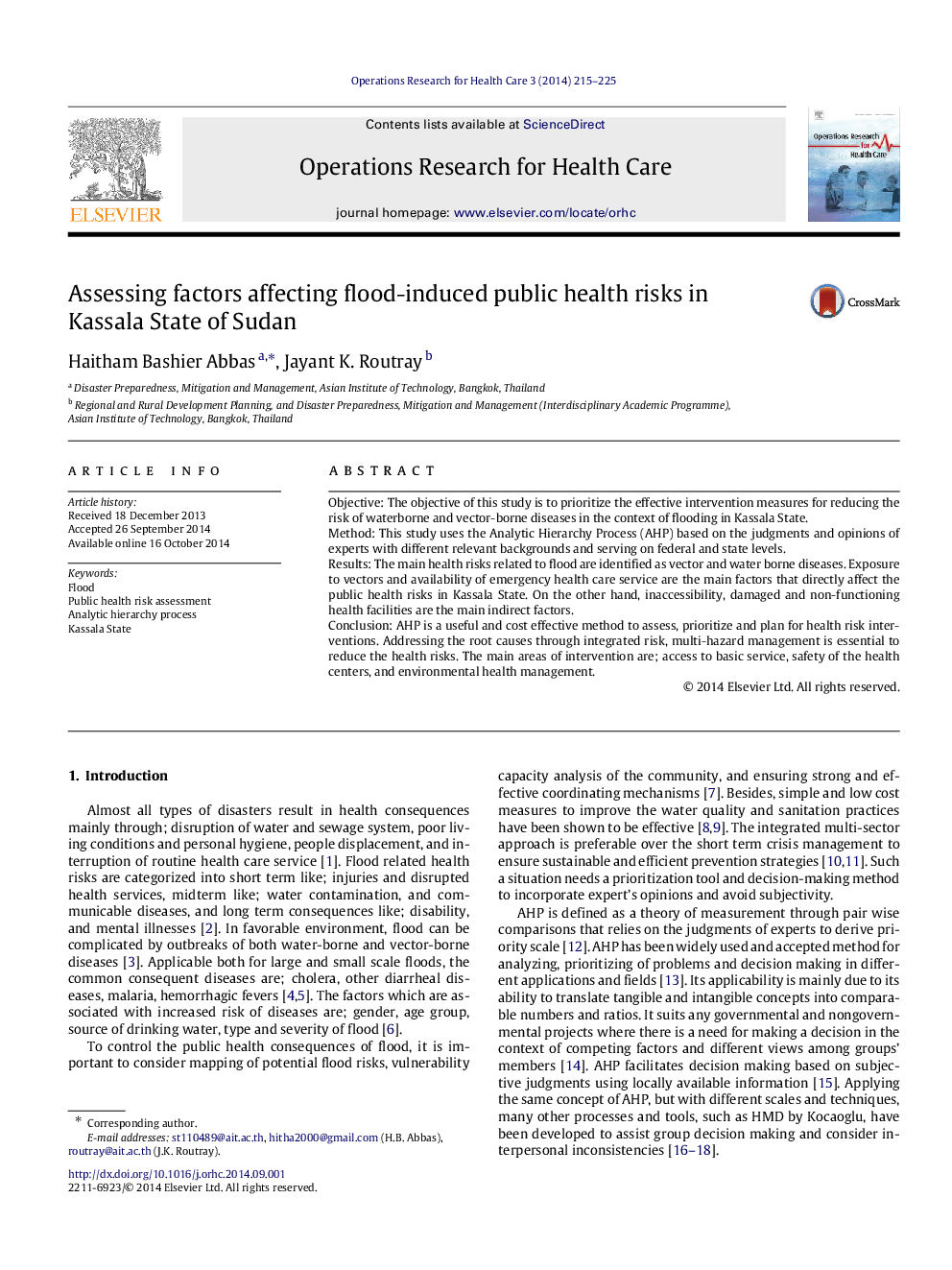| Article ID | Journal | Published Year | Pages | File Type |
|---|---|---|---|---|
| 1141961 | Operations Research for Health Care | 2014 | 11 Pages |
Objective: The objective of this study is to prioritize the effective intervention measures for reducing the risk of waterborne and vector-borne diseases in the context of flooding in Kassala State.Method: This study uses the Analytic Hierarchy Process (AHP) based on the judgments and opinions of experts with different relevant backgrounds and serving on federal and state levels.Results: The main health risks related to flood are identified as vector and water borne diseases. Exposure to vectors and availability of emergency health care service are the main factors that directly affect the public health risks in Kassala State. On the other hand, inaccessibility, damaged and non-functioning health facilities are the main indirect factors.Conclusion: AHP is a useful and cost effective method to assess, prioritize and plan for health risk interventions. Addressing the root causes through integrated risk, multi-hazard management is essential to reduce the health risks. The main areas of intervention are; access to basic service, safety of the health centers, and environmental health management.
